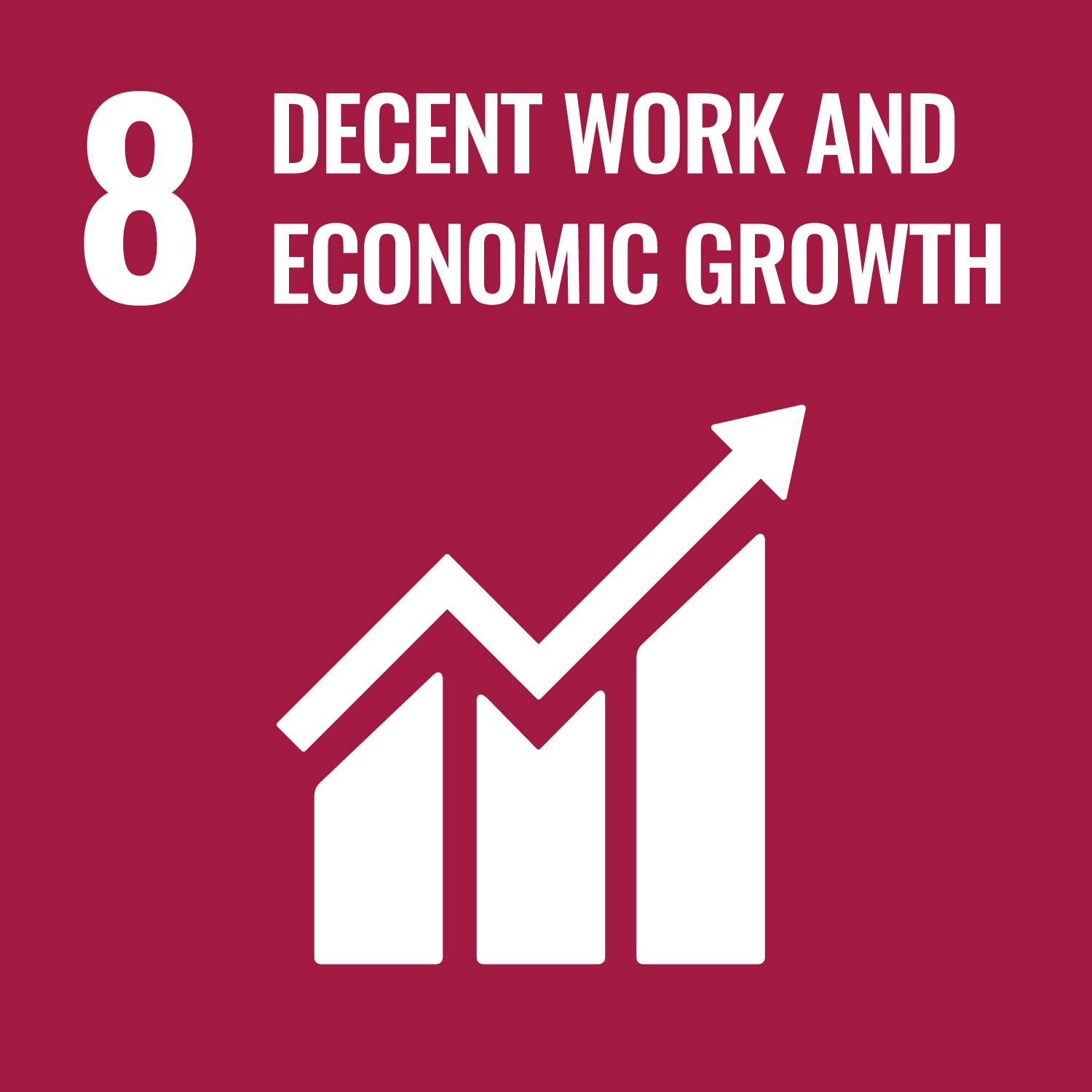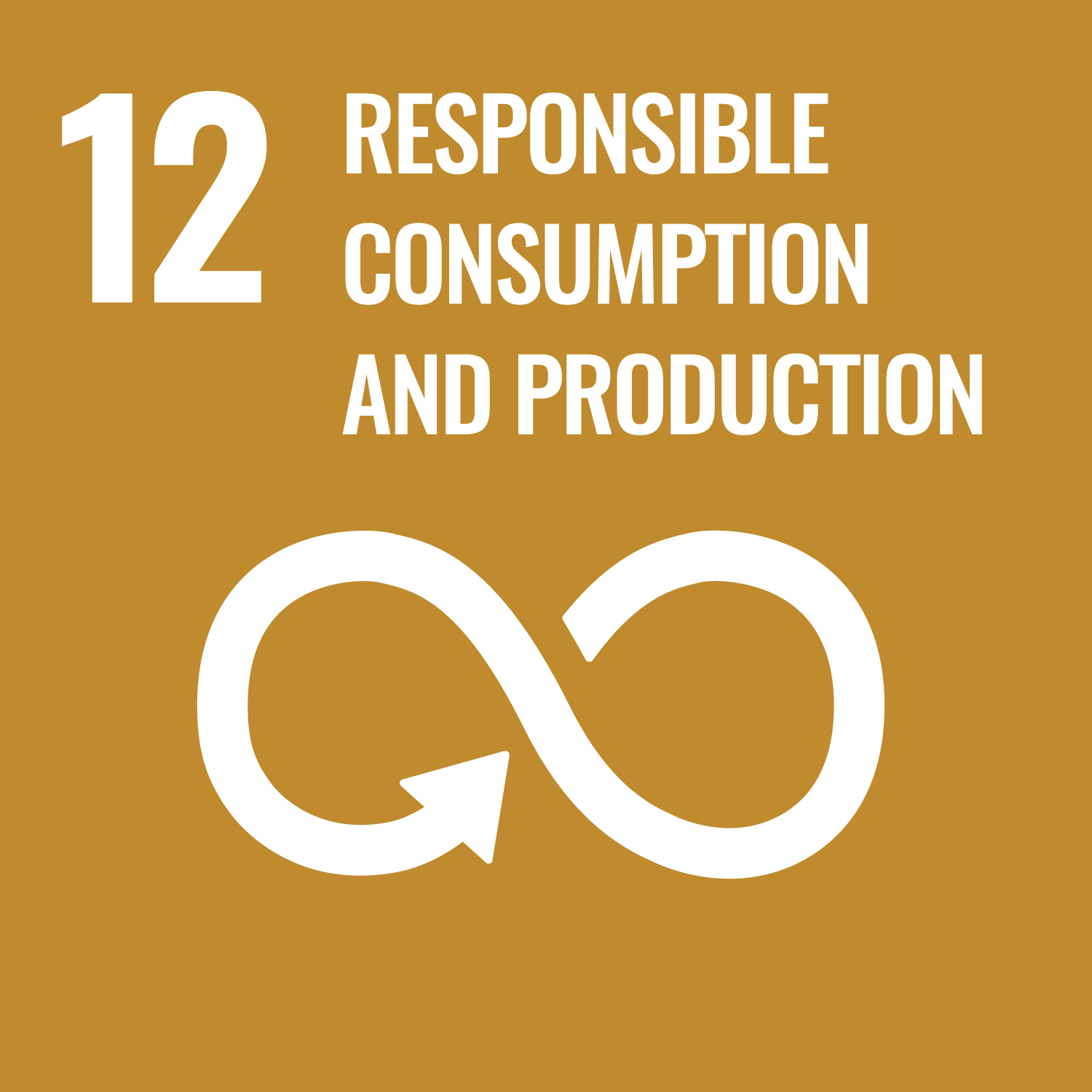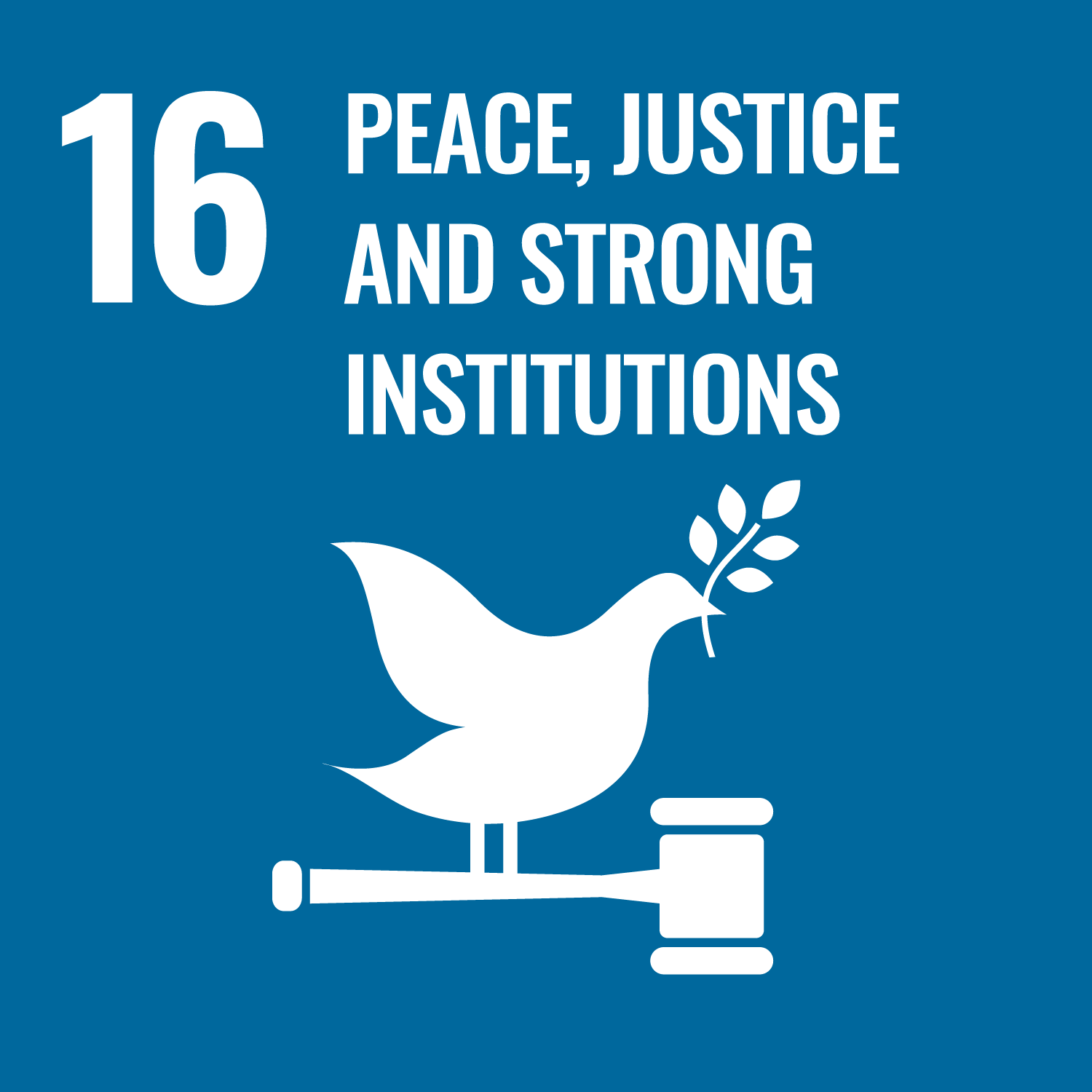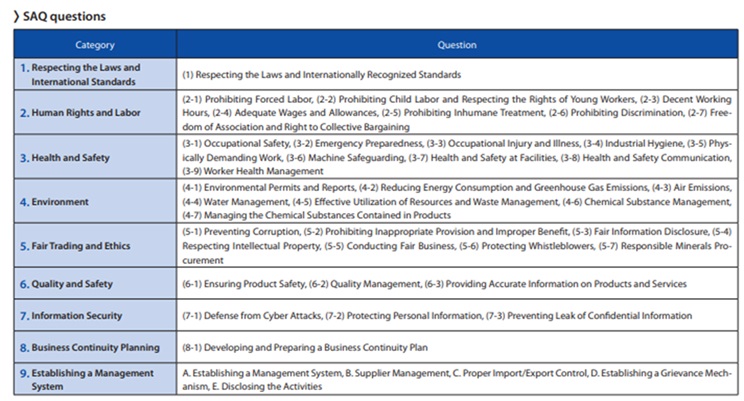- Sustainability
- Supply Chain Management
Supply Chain Management
To deliver products that satisfy customers, we collaborate with our business partners on quality, the environment, and social responsibility throughout the entire supply chain.



Purchasing policy
Promotion of Sustainable procurement
Promoting green procurement
Initiatives for Responsible Mineral Procurement
Our Initiatives for Issues Stipulated in the UK Modern Slavery Act
Online Whistleblowing and Complaint Form for Whistleblowing and Consultation by Business Partners
Purchasing policy
The Tamura Group Procurement Guidelines, which were established in March 2007, state, “As a company operating around the globe, we shall maintain a global perspective in our procurement of materials, working in the pursuit of profit creation together with companies that can demonstrate an understanding of the Tamura Group Vision and are able to participate in an ongoing partnership.” The Guidelines also indicate the Group's seven fundamental purchasing principles covering quality, the environment, and uniqueness as follows:
Promotion of Sustainable procurement
■Procurement Guidelines (Guidelines for Responsible Business Conduct in Supply Chains)
In order to meet the growing interest of stakeholders in the entire business processes from manufacturing to sales of products, the Tamura Group indicated basic purchasing policies in its Procurement Guidelines as mentioned above with the aim of advancing its CSR initiatives in the entire supply chain. Furthermore, the Group asks its business partners to understand and cooperate in the below-listed specific principles it promotes in daily operations.Click here to refer ‘Tamura Group Procurement Guidelines.’
■Supplier sustainability evaluation
We identified business partners accounting for 80% of total global transaction amounts by business division, and named these major suppliers. We request that these partners conduct SAQ-based self-checks based on our Guidelines for Responsible Corporate Conduct in the Supply Chain.
The response rate was 76% as of the end of March 2024. However, while challenges exist in terms of the construction of business continuity and management structures, responses were otherwise generally good. We will aim to achieve a 100% response rate, tackle improvements to challenging areas in cooperation with business partners, and promote the enhancement of sustainability throughout the supply chain.


Promoting green procurement
In order to deliver environment-friendly and safe products to customers, the Tamura Group established its Green Procurement Standards in 2002. The Company has been promoting the procurement of parts and materials with less substances of concern from suppliers who actively engage in environmental protection activities. Furthermore, we are asking them to design environmental management systems, chemical substance control systems based on JIS Z 7201 and other guidelines, and systems that guarantee chemical substances contained in products, as well as to conduct research on environmentally controlled substances specified by the Tamura Group. Click here to refer “Tamura Group Green Procarement Standards.”
Initiatives for Responsible Mineral Procurement
The procurement of minerals (such as tantalum, tin, gold, tungsten, cobalt, etc.) from conflict-affected and high-risk areas, including the Democratic Republic of the Congo and its neighboring countries, raises concerns about the risk of contributing to funding armed groups, human rights abuses, child labor, forced labor, and environmental destruction.
At the Tamura Group, we recognize these risks as significant issues and have established a policy of not procuring or using minerals from these regions. We are advancing initiatives throughout our supply chain with the cooperation of our business partners.
Current Measures
- The Tamura Group has established responsible mineral procurement in our "Basic Transaction Agreement," "Code of Conduct," and "Procurement Guidelines (Guidelines for Responsible Corporate Behavior in the Supply Chain)" to ensure that minerals related to conflicts and human rights abuses are not procured. We are working on this throughout the entire supply chain.
- To promote responsible mineral procurement throughout the supply chain, we use templates provided by the Responsible Minerals Initiative (RMI), such as the Conflict Mineral Reporting Template (CMRT) and the Extended Minerals Reporting Template (EMRT). We collect information with the cooperation of our business partners and provide information to our customers.
Our Initiatives for Issues Stipulated in the UK Modern Slavery Act
In accordance with the provisions of the UK Modern Slavery Act 2015, Tamura-Europe Limited, a Tamura Group company in the UK, has publicly released a statement on slavery and human trafficking.
ANNUAL MODERN SLAVERY STATEMENT
Online Whistleblowing and Complaint Form for Whistleblowing and Consultation by Business Partners
To encourage business partners to notify the Tamura Group if someone who is associated with the Group commits or is suspected to have committed a compliance violation so that a legal violation can be detected and rectified early on, the Group created an online whistleblowing and complaint form for whistleblowing and consultation by business partners on its website in October 2020, and notified main business partners of it. The reception desk will be operated in Japan as the initial step, and be expanded to overseas bases step by step.
The Group has an internal whistleblowing system targeting executives and employees in place; it will step up business operations based on a compliance culture further through the creation and operation of the new form.
Purchasing policy
Promotion of Sustainable procurement
Promoting green procurement
Initiatives for Responsible Mineral Procurement
Our Initiatives for Issues Stipulated in the UK Modern Slavery Act
Online Whistleblowing and Complaint Form for Whistleblowing and Consultation by Business Partners
Purchasing policy
The Tamura Group Procurement Guidelines, which were established in March 2007, state, “As a company operating around the globe, we shall maintain a global perspective in our procurement of materials, working in the pursuit of profit creation together with companies that can demonstrate an understanding of the Tamura Group Vision and are able to participate in an ongoing partnership.” The Guidelines also indicate the Group's seven fundamental purchasing principles covering quality, the environment, and uniqueness as follows:
Tamura Group Fundamental Purchasing Principles
|
Promotion of Sustainable procurement
■Procurement Guidelines (Guidelines for Responsible Business Conduct in Supply Chains)
In order to meet the growing interest of stakeholders in the entire business processes from manufacturing to sales of products, the Tamura Group indicated basic purchasing policies in its Procurement Guidelines as mentioned above with the aim of advancing its CSR initiatives in the entire supply chain. Furthermore, the Group asks its business partners to understand and cooperate in the below-listed specific principles it promotes in daily operations.Click here to refer ‘Tamura Group Procurement Guidelines.’
Specific Focus Items
Code of Conduct
1. Respecting the Laws and Internationally Recognized Standards
2. Human Rights and Labor
- (2-1) Prohibiting Forced Labor
- (2-2) Prohibiting Child Labor and Respecting the Rights of Young Workers
- (2-3) Decent Working Hours
- (2-4) Adequate Wages and Allowances
- (2-5) Prohibiting Inhumane Treatment
- (2-6) Prohibiting Discrimination
- (2-7) Freedom of Association and Right to Collective Bargaining
3. Health and Safety
- (3-1) Occupational Safety
- (3-2) Emergency Preparedness
- (3-3) Occupational Injury and Illness
- (3-4) Industrial Hygiene
- (3-5) Physically Demanding Work
- (3-6) Machine Safeguarding
- (3-7) Health and Safety at Facilities
- (3-8) Health and Safety Communication
- (3-9) Worker Health Management
4. Environment
- (4-1) Environmental Permits and Reports
- (4-2) Reducing Energy Consumption and Greenhouse Gas Emissions
- (4-3) Air Emissions
- (4-4) Water Management
- (4-5) Effective Utilization of Resources and Waste Management
- (4-6) Chemical Substance Management
- (4-7) Managing the Chemical Substances Contained in Products
5. Fair Trading and Ethics
- (5-1) Preventing Corruption
- (5-2) Prohibiting Inappropriate Provision and Improper Benefit
- (5-3) Fair Information Disclosure
- (5-4) Respecting Intellectual Property
- (5-5) Conducting Fair Business
- (5-6) Protecting Whistleblowers
- (5-7) Responsible Minerals Procurement
6. Quality and Safety
- (6-1) Ensuring Product Safety
- (6-2) Quality Management
- (6-3) Providing Accurate Information on Products and Services
7. Information Security
- (7-1) Defense from Cyber Attacks
- (7-2) Protecting Personal Information
- (7-3) Preventing Leak of Confidential Information
8. Business Continuity Planning
- (8-1) Developing and Preparing a Business Continuity Plan
Establishing a Management System
A. Establishing a Management System
B. Supplier Management
C. Proper Import/Export Control
D. Establishing a Grievance Mechanism
E. Disclosing the Activities
■Supplier sustainability evaluation
We identified business partners accounting for 80% of total global transaction amounts by business division, and named these major suppliers. We request that these partners conduct SAQ-based self-checks based on our Guidelines for Responsible Corporate Conduct in the Supply Chain.
The response rate was 76% as of the end of March 2024. However, while challenges exist in terms of the construction of business continuity and management structures, responses were otherwise generally good. We will aim to achieve a 100% response rate, tackle improvements to challenging areas in cooperation with business partners, and promote the enhancement of sustainability throughout the supply chain.
Promoting green procurement
In order to deliver environment-friendly and safe products to customers, the Tamura Group established its Green Procurement Standards in 2002. The Company has been promoting the procurement of parts and materials with less substances of concern from suppliers who actively engage in environmental protection activities. Furthermore, we are asking them to design environmental management systems, chemical substance control systems based on JIS Z 7201 and other guidelines, and systems that guarantee chemical substances contained in products, as well as to conduct research on environmentally controlled substances specified by the Tamura Group. Click here to refer “Tamura Group Green Procarement Standards.”
Initiatives for Responsible Mineral Procurement
The procurement of minerals (such as tantalum, tin, gold, tungsten, cobalt, etc.) from conflict-affected and high-risk areas, including the Democratic Republic of the Congo and its neighboring countries, raises concerns about the risk of contributing to funding armed groups, human rights abuses, child labor, forced labor, and environmental destruction.
At the Tamura Group, we recognize these risks as significant issues and have established a policy of not procuring or using minerals from these regions. We are advancing initiatives throughout our supply chain with the cooperation of our business partners.
Current Measures
- The Tamura Group has established responsible mineral procurement in our "Basic Transaction Agreement," "Code of Conduct," and "Procurement Guidelines (Guidelines for Responsible Corporate Behavior in the Supply Chain)" to ensure that minerals related to conflicts and human rights abuses are not procured. We are working on this throughout the entire supply chain.
- To promote responsible mineral procurement throughout the supply chain, we use templates provided by the Responsible Minerals Initiative (RMI), such as the Conflict Mineral Reporting Template (CMRT) and the Extended Minerals Reporting Template (EMRT). We collect information with the cooperation of our business partners and provide information to our customers.
Our Initiatives for Issues Stipulated in the UK Modern Slavery Act
In accordance with the provisions of the UK Modern Slavery Act 2015, Tamura-Europe Limited, a Tamura Group company in the UK, has publicly released a statement on slavery and human trafficking.
ANNUAL MODERN SLAVERY STATEMENT
Online Whistleblowing and Complaint Form for Whistleblowing and Consultation by Business Partners
To encourage business partners to notify the Tamura Group if someone who is associated with the Group commits or is suspected to have committed a compliance violation so that a legal violation can be detected and rectified early on, the Group created an online whistleblowing and complaint form for whistleblowing and consultation by business partners on its website in October 2020, and notified main business partners of it. The reception desk will be operated in Japan as the initial step, and be expanded to overseas bases step by step.
The Group has an internal whistleblowing system targeting executives and employees in place; it will step up business operations based on a compliance culture further through the creation and operation of the new form.